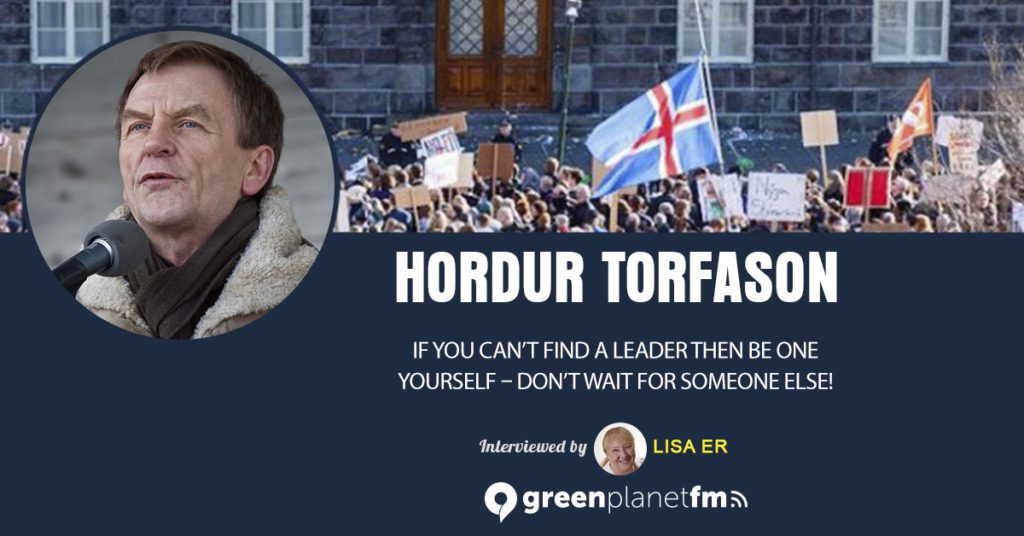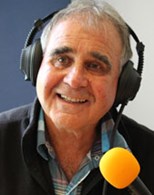
He came to New Zealand this year to speak about how ‘the leader he was looking for was inside himself’.
Hordur Torfason was waiting for a leader to stand up against discrimination of gays in Iceland in his twenties. Suddenly one day he realised that no
one was coming to do it. He says, “If you can’t find a leader then be one yourself – don’t wait for someone else” “The leader I was looking for
was inside myself”!
He was the first man in his country to step out and say, “I am gay and there is nothing wrong with that”. Overnight, he was out of work. He lost everything.
Constantly threatened, he had to flee to Denmark.
He decided to return to Iceland and fight. He worked to turn the bad into something good. Slowly, he built a gay rights organisation and a gay theatre
company.
Now accepted, “Hörður Torfason is a noted Icelandic songwriter and activist. He has written plays and poetry, played numerous roles on stage and in
several films, directed about 50 stage productions and designed and built stage sets for most of them.” Wikipedia.
In 2008, when Hordur was age 63 the global financial crisis hit. By October 2008, Iceland's debt had rocketed to more than seven times its GDP. All
three of Iceland's major commercial banks defaulted on their debts. The value of the national currency fell sharply. A severe economic depression
set in. Unemployment tripled. Many people lost all their savings. The nation was in crisis. All around him, Torfason saw desperation, confusion
and anger. "It was obvious no-one was going to help them," he says.
The bank crash occurred on Monday October 6th (2008) and the following Saturday Hordur started to ask questions of friends, and on Facebook. He told
his friends that he would be at parliament every day at midday and he asked his friends to join him. Gradually the crowd grew until thousands came.
He had two questions for parliament:
“Do you know what happened and how can you explain it?”
and “Have you any idea what to do about it?”
People were very angry, some having lost their houses and their cars, but he said to the crowd, “We don’t use violence – do you agree?” and the crowd
agreed. He led the idea but cleverly got buy-in from the crowd.
In the interview Hordur explains how two Iceland banks had been ‘bought’ by private interests for no money, showing the corrupt relationship between
the politicians and business.
After the government of Iceland was made to resign and the new government, a coalition of Greens and Social Democrats was in power, the people requested
that there be a new constitution. A committee of 25 people were voted to write it. However once finished, it was ignored. Hordur speaks of the
importance of having a constitution and how it should be reviewed or renewed every 20 years as things are always changing.
As the new constitution has not been ratified, a group called the Constitution Society has been formed and there is pressure for the government to
bow to the people’s demands. However Hordur says this is difficult because the country is not really run by politicians, but by a group of “ten
white middle aged white men behind parliament running everything.”
Yellow Vest Movements have contacted Hordur from both France and Canada. However there did not seem to be one leader for him to talk to and so thus
far he has avoided responding. He feels that when organisations have violence and not brains in action, he is not willing to support them. “You
can’t have a lot of leaders,” he says, but you must connect with the people and ask what is their pain. If there is no pain then ask why they are
protesting. He also advises to ignore rudeness, It is just the inability to express themselves.
Hordur explains the reason French protestors chose yellow vests is because everyone had them in their cars, in case of breakdowns – so it was easy
to use them and make themselves distinctive. In Iceland they took pots and pans to their protests to bang and make a noise, with the intent of
disturbing the politicians in parliament. It is good to have an identifying theme when protesting.
Recently Hordur had a book published about his life and protests. It is called, “Bylting”, which means both Breakthrough and Revolution in Icelandic.
Here’s hoping it is translated into English soon.
He has another book in the pipeline and while not as young as he used to be, retirement does not look like a likely option for quite some time.
He lives in Reykjavik with his partner Massimo Santanicchia who is an urbanist, planner, and assistant professor at the Iceland Academy of the Arts
in Reykjavik.
“Agent of Change” – a write up of Hordur’s 2019 visit to New Zealand.
https://www.odt.co.nz/lifestyle/magazine/agent-change-0
Here is Lisa’s 2013 Greenplanetfm interview with Hordur
https://www.ourplanet.org/greenplanetfm/hordur-torfason-icelandic-political-activist
Here is Lisa’s 2016 Greenplanetfm interview with Hordur
https://www.ourplanet.org/greenplanetfm/hordur-torfason-the-icelandic-revolution-activist
